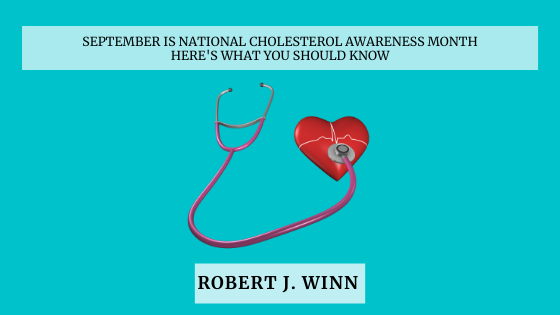More than 102 million adults are estimated to have high cholesterol levels. High cholesterol is a serious condition that can affect heart health and function. Each September is dedicated to educating people about high cholesterol and what steps can lower it.
Cholesterol Facts
Cholesterol is a fat-like, waxy substance that is found in the bloodstream and in many foods. Some cholesterol is necessary for the body to function. The body makes this cholesterol on its own.
If the body has too much cholesterol, it can build up in the arteries over time. These cholesterol deposits can cause the arteries to narrow, slow down, or stop blood flow. This puts people at risk of experiencing a heart attack or stroke.
High Cholesterol Numbers
The Center for Disease Control recommends that total cholesterol be less than 170mg/dL. Levels above 200mg/dL are considered high, and those with levels of 240mh/dL are at serious risk of heart-related problems.
Health professionals also recommend that within the total cholesterol levels, LDL levels be less than 110mg/dL, and HDL levels should be 35 mg/dL or higher. Triglycerides should be kept at levels of less than 150mg/dL.
Children, Teenagers, and Young Adults
Though many people think of high cholesterol as a problem that plagues older adults, it can occur in the young. Experts estimate that 20 percent of those aged 12 to 19 have one or more abnormal lipid levels. Children and teens who are overweight or obese are at the most significant risk of high cholesterol. Experts recommend that children, teens, and young adults who are overweight be tested regularly.
Checking for High Cholesterol Levels
There are no symptoms associated with high cholesterol, so adults must get tested regularly. Adults over the age of 20 with no family history of heart disease or cholesterol problems should have their cholesterol checked every five years. Doctors may recommend more frequent check-ups as needed.
A simple blood test is all that is needed to check cholesterol levels. A doctor can order the test through a lab or draw the blood in their office.
How to Lower Cholesterol Levels
To lower high cholesterol levels, medical professionals recommend eating a high fiber, low-fat diet. Adults should get at least two hours and 30 minutes of exercise per week; children and teenagers should get approximately an hour a day. Maintaining a healthy weight, not smoking or vaping, and managing blood pressure levels can help reduce levels and put less strain on the heart to reduce heart disease.
Article originally published on Medium: https://preview.tinyurl.com/y3odzg24


